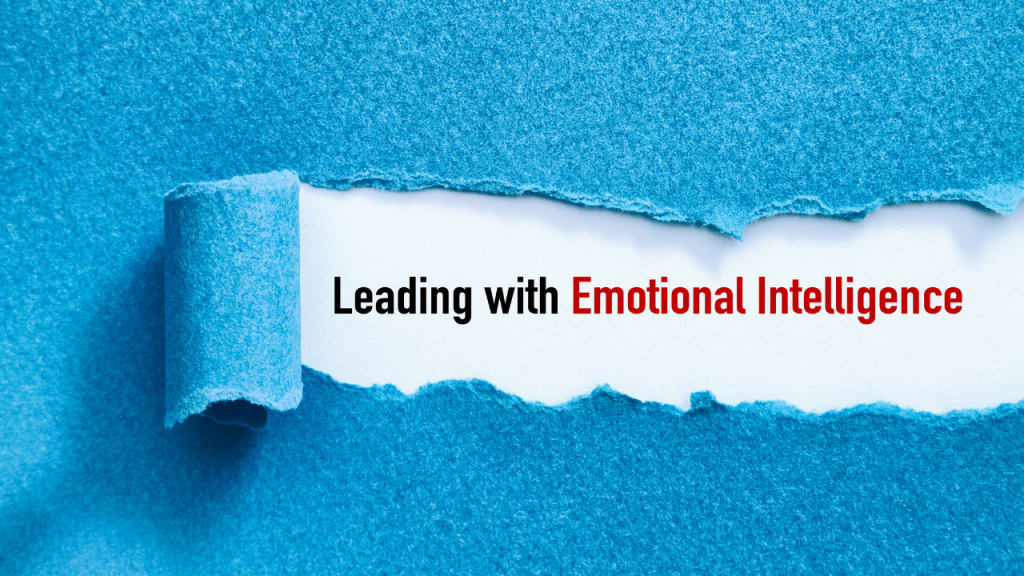
Emotional intelligence is one of the most important factors in determining the quality of a person's personal and professional interactions. However, not everyone possesses the same amount of emotional intelligence, and it can be difficult when your spouse struggles in this area. Emotional intelligence is a trait that can be learned. The purpose of this piece is to offer some pointers on how to love and support your partner even when they have a low level of emotional intelligence. You can establish a climate in your relationship that is conducive to growth and emotional well-being by empathizing with one another, encouraging open communication, and demonstrating an awareness of one another's needs.
Before delving into strategies, it is essential to understand what emotional intelligence entails. Emotional intelligence is the capacity to not only identify, understand, and control one's own feelings, but also to navigate and respond appropriately to the feelings of others. It includes characteristics such as self-awareness, self-regulation, empathy, and the ability to communicate effectively.
Encourage your spouse to develop self-awareness by gently guiding them to reflect on their emotions and behaviors. This will help them become more aware of themselves. Assist them in recognizing patterns and triggers that lead to emotional responses, and provide them with assistance. Encourage people to improve their self-awareness by keeping a journal, engaging in practices that involve mindfulness, or going to counseling.
Create a safe and non-judgmental space for your spouse to express their feelings and thoughts. Encourage honest conversation as well as attentive listening. A spouse's feelings should be validated, and one should refrain from minimizing or trivializing another spouse's experiences. This helps to cultivate trust and establish a setting that is conducive to the growth of emotional intelligence.
The ability to empathize with your spouse is essential to developing emotional intelligence. If you want him or her to develop empathy, you should encourage him to think about and comprehend the feelings and views of other people. Participate together in activities that foster empathy, such as giving back to the community or performing acts of kindness for others.
Supporting the development of healthy coping mechanisms and emotional regulation methods in your partner is an effective strategy for improving emotional regulation. Encourage your spouse to investigate different methods for relieving stress, such as physical activity, or carrying out activities that they find enjoyable as a hobby. You should educate them on the significance of self-care and how it can help to a healthy emotional state.
Consider Advising Your Spouse to Seek Professional Help If you feel that your partner's lack of emotional intelligence has a substantial influence on both their well-being and your relationship. Emotional intelligence can be improved and the connection between you and your spouse can be strengthened with the help of counseling and tools that can be provided by therapists, counselors, or relationship coaches.
Leading by example and demonstrating emotional intelligence to one's spouse can have a significant and positive effect on the relationship. Empathy, good communication, and self-regulation in your own conduct are all important skills to demonstrate. Discussing your past experiences, challenges, and achievements with your spouse can serve as a source of motivation and encouragement for them as they work toward developing their emotional intelligence.
The development of emotional intelligence is a process that takes time and requires both patience and understanding. It calls for persistence, comprehension, and backing from others. Recognize that making changes takes time and that experiencing setbacks is a normal and expected part of the process. Recognize and honor even the most insignificant successes, and be reassuring to others when things go difficult.
Assisting and loving a partner who is lacking in emotional intelligence can be a tough and gratifying experience all at the same time. It is possible to cultivate understanding, encourage self-awareness, promote open communication, and cultivate empathy, all of which will contribute to the creation of a caring atmosphere that is conducive to growth and development. Further, it is important to keep in mind that this is a journey that calls for patience, compassion, and commitment from both parties. In order to build a foundation of love, understanding, and emotional well-being in your relationship, the two of you need to work together to get over the difficulties you've experienced, improve your emotional intelligence, and deepen the connection you share.
About the Creator
Kaylene
I am an educator and author with a passion for singing, dancing, reading, writing, and other artistic pursuits.






Comments
There are no comments for this story
Be the first to respond and start the conversation.